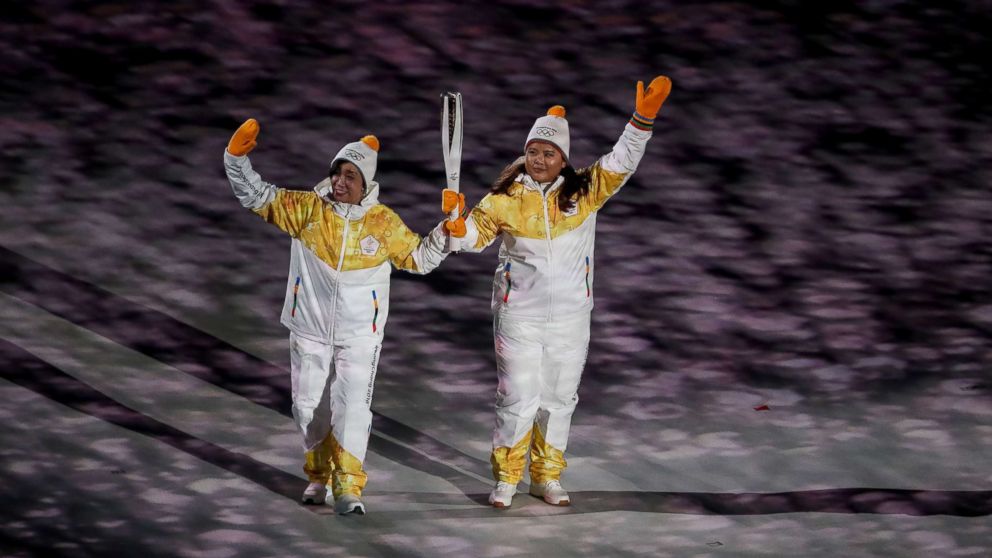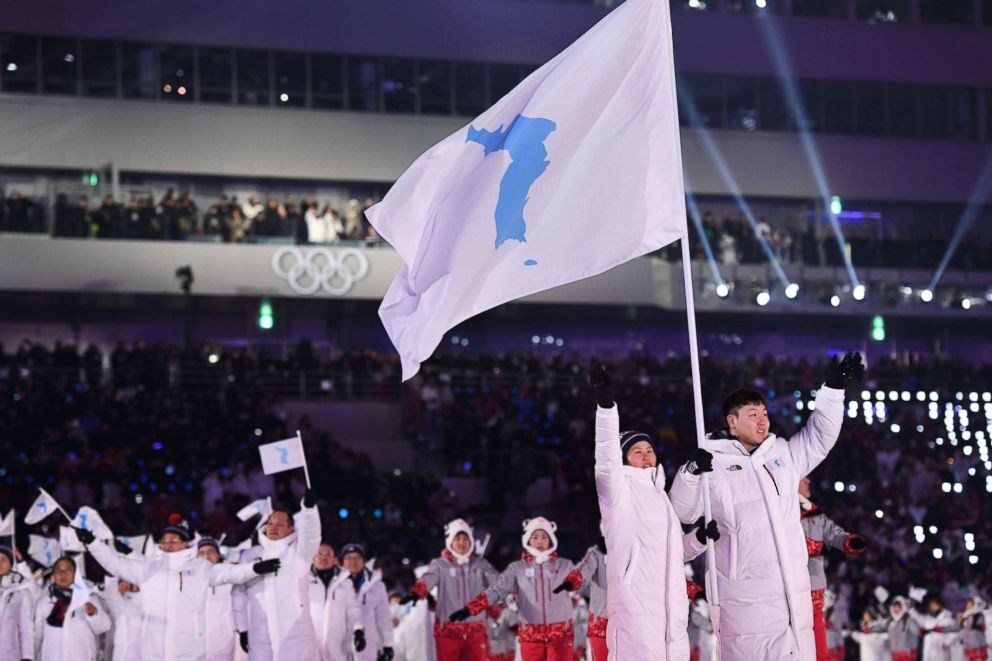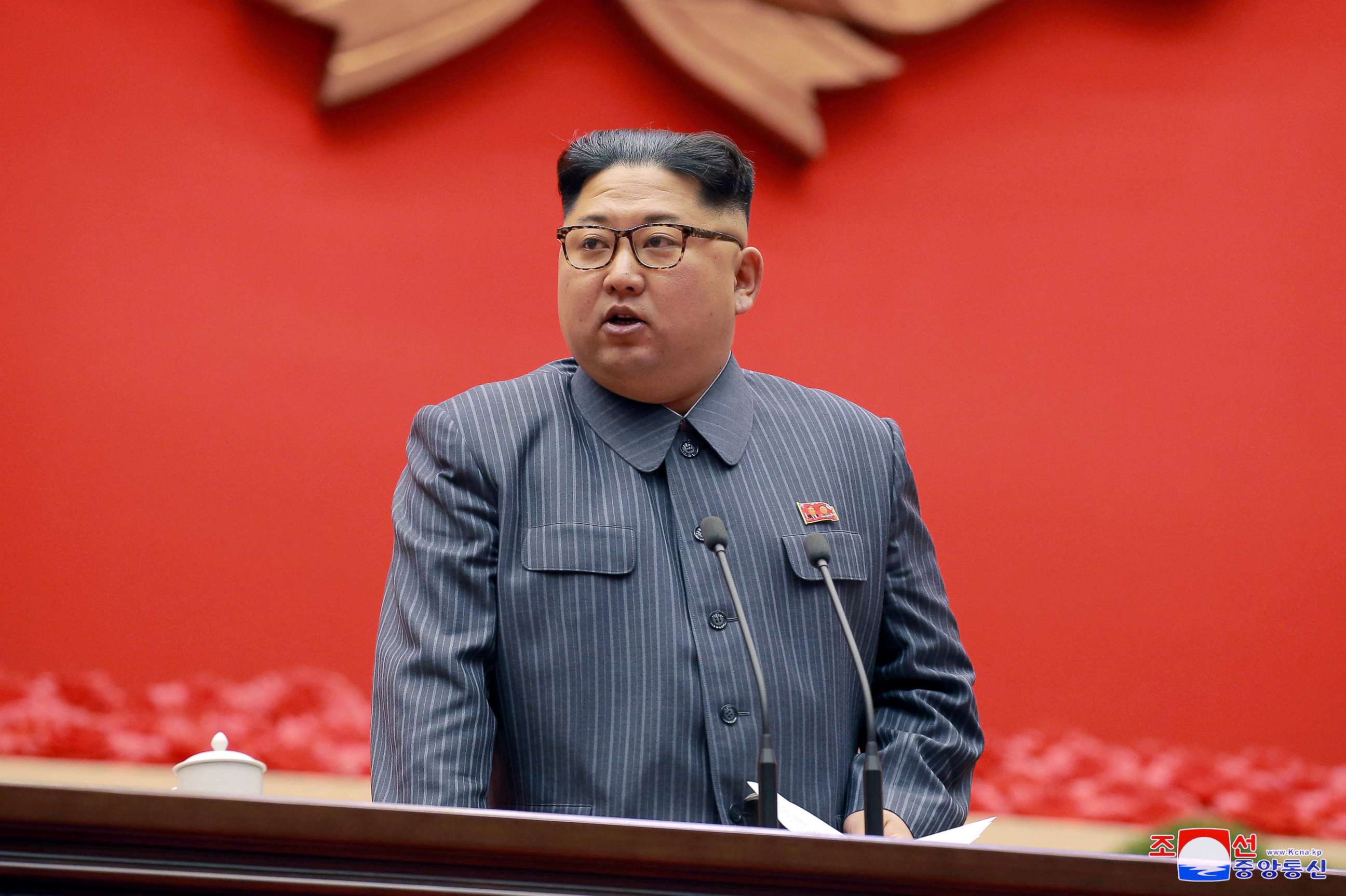The reasons North Korean athletes won't defect
Twenty-two North Korean athletes were sent to the Games to compete.

— -- Athletes from North Korea waved and marched in the Opening Ceremony of the Winter Games in Pyeongchang, South Korea, Friday, offering the world a brief glimpse into the hermetic nation.
Twenty-two North Korean athletes were sent to the Games to compete. North Korea has not participated in the Winter Games in eight years, and not a single athlete from the country has ever defected during the Olympics.
"One of the main reasons North Korean athletes don’t defect is because of their families back in North Korea," said Benjamin Young, a doctoral candidate at George Washington University who has researched sports in North Korea. "The families are well connected and intensely loyal to the Kim family regime. From a material standpoint, they live comfortable lives in the capital and they receive awards from the state for good performances, such as refrigerators and even apartments."

The North Korean sports program typically picks the top athletes from regional competitions at an early age and brings them to the capital to train in special schools and academies for many years, according to Young.
"It's very similar to the communist sports system that existed in the Soviet Union. The regime grooms individuals to become athletes," he said.
These athletes also have "minders" that go with them everywhere.
The minders have multiple roles, providing security, supervision and translation. They also report anything suspicious to party leaders in Pyongyang. But, said Young, "for the most part, North Koreans impose rules on themselves, self-censoring from their indoctrination and ideological training in North Korea."
Athletes also tend to have intense loyalty toward the regime due to their privileged treatment.
"From a regular people’s point of view, the athletes are nowhere near the general people," Kim Danbi, 28, who defected from North Korea in 2011, said. "[The athletes] will be thinking about how they’re so grateful that the party is giving them the opportunity to participate in training and games overseas."

Added Young, "If a North Korean athlete defected, it would be a slap in the face to the Kim regime, and any family members back in North Korea will face severe punishment."
North Korean leaders also understand the fascination the world has with its athletes.
"Pyongyang uses this attention as a political tool because [North Korean leaders] know the outside world is obsessed. When it comes to North Korea, nothing is apolitical," Young said.



